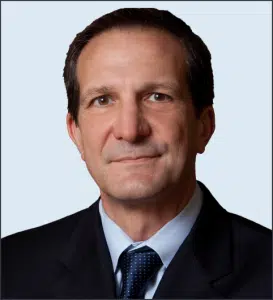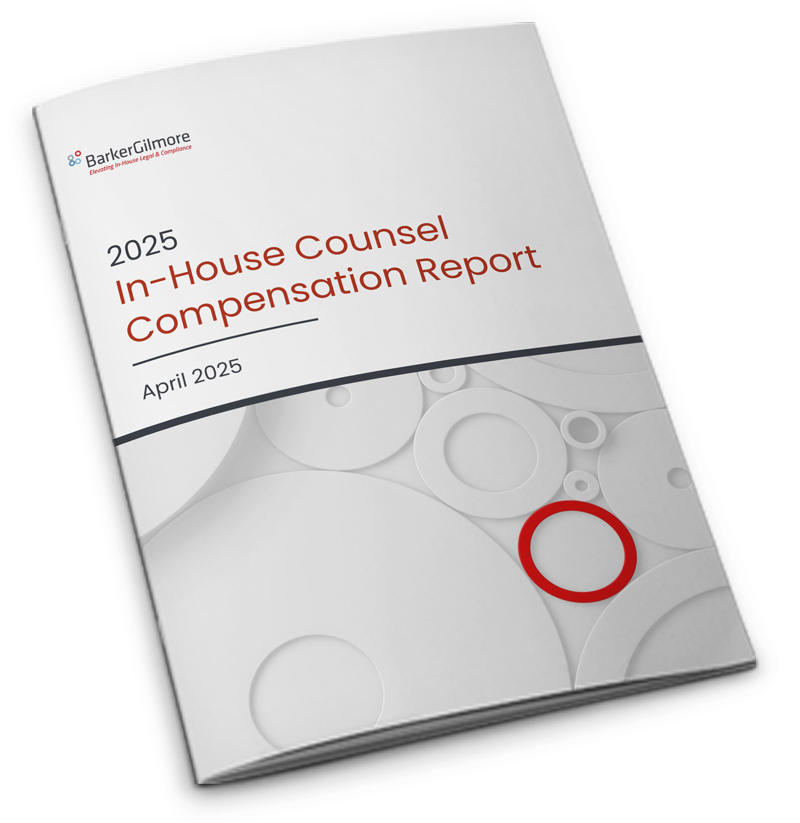 Gjon Nivica, Jr. most recently served as Senior Vice President and General Counsel of Celanese Corporation, a Fortune 500 global technology and specialty materials company based in Dallas, Texas. Prior to his tenure at Celanese, he was Vice President and General Counsel, Transportation Systems, at Honeywell International, a Fortune 100 multinational conglomerate providing products and technologies for aerospace, automotive, clean energy, and safety and security solutions. Serving for more than 20 years as a general counsel executive, Gjon has been valued as a strategic business partner to senior management and boards of directors. He has a proven track record of leadership, sophisticated judgement, and developing best-in-class law departments committed to delivering business-oriented and creative solutions while optimizing efficiencies. Gjon adds his expertise to the strategic counsel, coaching, leadership development, succession planning, and other services that BarkerGilmore advisors provide to legal and compliance departments, CEOs, and boards across the country.
Gjon Nivica, Jr. most recently served as Senior Vice President and General Counsel of Celanese Corporation, a Fortune 500 global technology and specialty materials company based in Dallas, Texas. Prior to his tenure at Celanese, he was Vice President and General Counsel, Transportation Systems, at Honeywell International, a Fortune 100 multinational conglomerate providing products and technologies for aerospace, automotive, clean energy, and safety and security solutions. Serving for more than 20 years as a general counsel executive, Gjon has been valued as a strategic business partner to senior management and boards of directors. He has a proven track record of leadership, sophisticated judgement, and developing best-in-class law departments committed to delivering business-oriented and creative solutions while optimizing efficiencies. Gjon adds his expertise to the strategic counsel, coaching, leadership development, succession planning, and other services that BarkerGilmore advisors provide to legal and compliance departments, CEOs, and boards across the country.
What are the hot button issues in today’s legal departments?
As a general principle, I always pushed the law department’s preventive law program to pay particularly close attention to issues around anticorruption and antitrust given the possibilities for large potential fines and significant reputational damage if you get it wrong. But more generally and systematically, you have to ensure the company is not blindsided by the application of a new or existing “hot button” law or regulation. This is inherently more difficult and includes broad considerations of the company, its operations, and its subsidiaries and affiliates around the globe. To help the company “see around corners” in the face of this risk and complexity there has to be an organized and ongoing program jointly run by key stakeholders of the business and their in-house attorneys, linked with outside expertise in the relevant fields. This collective network is designed to function as a kind of radar detection system that feeds important insights and recommended solutions into the broader enterprise risk management and mitigation system. It takes some time and thought to launch, but it ultimately provides the company with the best opportunity for early identification and resolution of “hot button” issues before they get too hot.
In what ways did you make the most significant impact on the companies you served?
I’ve led legal teams to success on many fronts, from material acquisitions to unanimous verdicts in bet-the-company litigation, and turned around legal departments by redesigning the organization, upgrading the talent, and building a high-performing team that quickly and efficiently delivered timely, quality legal services. I’ve also developed world-class business conduct programs and ethics policies, and a legal team and process mechanics that led to being recognized as “Best Legal Department” by Corporate Counsel. But the most enduring impact any general counsel makes is on the quality of people – and their thinking – that he or she has hired and developed along the way. What is left in the minds of your team members is what will matter most.
What are the best “words to live by” that you would want GCs to know?
Never forget who your client is. This seems easy enough, but as a general counsel you quickly find yourself among competing interests and views, differing ideas about the best short- and long-term interests of the company, pressure to make the numbers, and varying risk tolerances. This is all bound up in a group of individuals with their own political and career objectives at stake. Your duty foremost is to represent not a single person or group of people but the best interests of the company. Living this duty well is both energizing and weight-bearing. It certainly takes business, legal, and social skills, but it also takes courage. All these virtues have to be brought to bear but if you fail to remember who your client is in the first instance, you will still be left with little chance of ultimately getting it right.
What are you passionate about?
I am passionate about the quest for improvement in all important dimensions of one’s life and career and enjoy interacting and surrounding myself with those who are thoughtful and truly striving to improve both themselves and others. Conversely (but to the same degree), I’m thoroughly unmoved by ill-conceived projects and by those who view themselves as completed works of art, with no perceived need or motivation to continue to learn or grow. This is not designed to be callous; it’s an important and clear litmus test for when and where to say “no” and alternatively freeing you up to determine how and with whom you choose to spend your most precious resource: your time.
How have you helped others succeed?
The fundamental principle I always insisted on for any lawyer in the department was to “act like an owner.” Owners are passionate and committed to the business and think broadly and creatively to serve their clients; they are radically curious and take responsibility while going to great lengths to get things right for the customer. Being an excellent lawyer is a necessary precondition, but the fact is there are plenty of excellent lawyers out there and that’s not enough. If you want to differentiate yourself and your value equation as an in-house lawyer, you must be an “owner” – a true leader – as well.
What do you wish you knew in your first in-house role?
Moving from a law firm as an M&A attorney to a global corporation as an in-house lawyer, I was immediately struck by the access I had to an incredible breadth of perspectives, cultures, views, backgrounds, academic degrees, and functional expertise all under one roof. And because we all had a common corporate objective, I was surrounded by people who had a vested interest in my growth and development as a lawyer and business partner. All I had to do was ask. If you embrace this environment and are enthusiastic to seek out and to observe the diversity of thought, you will find a rich environment to learn and to broaden your knowledge. It’s a unique experience, so you want to make the most of it.
What is typically the most significant area for development for a GC?
Lawyers rarely lack for logic-chopping skills, but we often can use a jump-start to become more innovative in the delivery of in-house legal services. Client expectations are set in part by the experiences of their day-to-day lives, where there is instant access to a wide-variety of quality goods and services, delivered on their timetable with an ease of use facilitated by technology. Why should they put up with something less when they show up for work? Beyond that, once you have an improved service to offer, it’s important to think like an outside service provider and market your “product.” Whether you like it or not, the law department and its initiatives compete for time and attention in the context of a busy corporate calendar and a modern sensibility that demands ease of use and short bursts of information. As the general counsel, you need to drive your department towards innovative solutions that keep up.
Of what accomplishments are you most proud?
I’m most proud of the people I’ve hired, managed, and mentored over the years. Throughout my career, I’ve made every attempt to provide my lawyers with candid and constructive feedback, formally, of course, but most importantly and more regularly, informally. Attorneys committed to self-improvement appreciate authentic feedback delivered in the moment through direct observation, or just as often through a seemingly endless series of questions. At times my lawyers rightfully accused me of asking questions to which I already knew the answer, but they equally understood that the point was to sharpen our collective thinking. This helped prepare them for the many interactions out in the business when they would be fending for themselves. Ultimately it is the most important part of one’s legacy long after the work is done – you have to leave your colleagues better than you first found them.
In your role as a BarkerGilmore advisor, where do you see yourself adding the most value to GCs?
I was fortunate to become general counsel of a Fortune 500 company’s largest business unit at the age of 32. But it was very much trial by fire; there was no “how-to” manual. Over the next 20 years, I consistently used internal customer feedback to help design and improve the vision and strategy for the law department, ensured the strategy was subject to a management operating system against which individuals and teams would execute and be held accountable, and applied metrics where appropriate to help drive focus and results. I’ve learned what is required to take a department that is not yet good and turn it into something great, or to take a great department and help it innovate and refine itself to become something better. Along the way, I consistently was able to identify, attract, and develop world-class attorneys while successfully dealing with a wide-range of substantive legal and business issues across numerous industries and geographies. Based on these experiences, I’m able to help formulate, accelerate or improve solutions needed to deal with a wide array of important issues that general counsel face today.
Connect with a legal recruiting advisor
* indicates required fields




